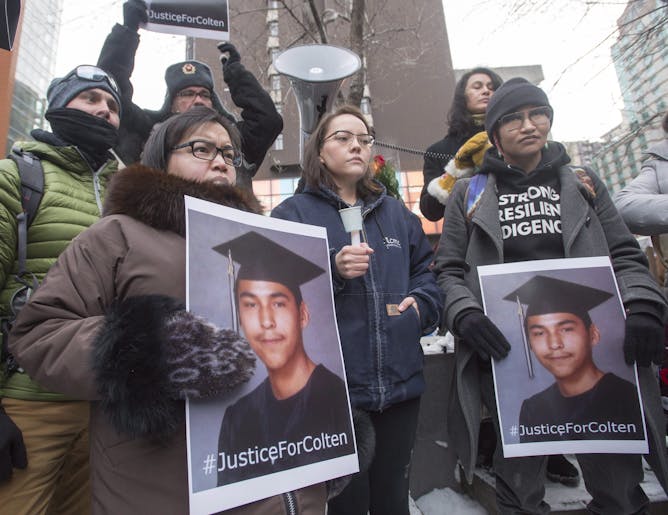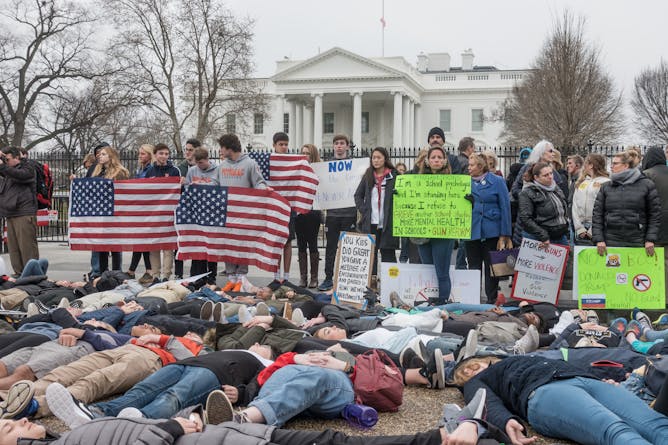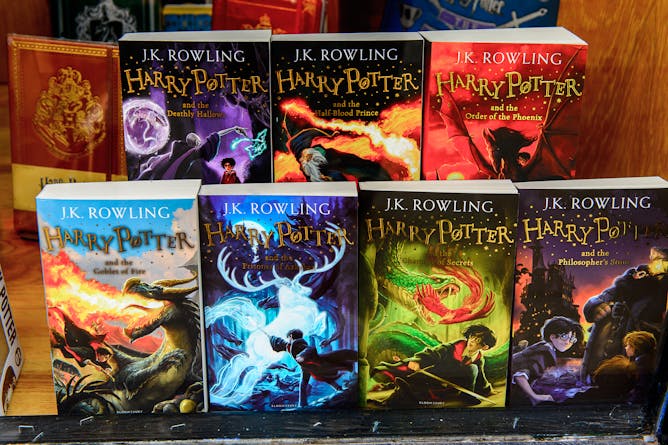| |
|
|
|
|
|
|
| |
|
Destroying colonial myths
|
|
Another controversial verdict Thursday in the death of a young Indigenous person - 15-year-old Tina Fontaine - will prompt a new round of criticisms about the Canadian justice system. Today in The Conversation Canada, Keith Thor Carlson of the University of Saskatchewan looks at how social media has been rife with hateful rants since Gerald Stanley was acquitted earlier this month of murdering Colten Boushie.
“Rather than exploring the structures that have provided privileges to some while denying them to others, or finding ways to express empathy for those who are hurting, some Canadians are seeking solace in tired, hurtful and long discredited settler colonial myths,” writes the professor of history and Research Chair in Indigenous and community-engaged history, who then also picks apart those myths.
The horrible mass shooting at a Florida high school has, unfortunately, become an all-too-familiar event in the United States. J.M. Opal, an American professor who teaches at McGill University, explains to our Canadian audience why “for deep historical reasons of race and revolution” or American neighbours “will claim the right to use deadly force, to be ‘sovereign’ over everyone else.”
Fenwick McKelvey of Concordia University and Abhishek Gupta look at the social implications of artificial intelligence and how Canada is poised to be a leader in this area. “Canada has a clear choice. Either it embraces the potential of being a leader in responsible AI, or it risks legitimating a race to the bottom where ethics, inequity and justice are absent.”
And finally, if you’re a fan of the Harry Potter books, you’ll want to read the analysis by J. Andrew Deman of the University of Waterloo who notes author J.K. Rowling’s work “has more in common with King Lear than most English professors might care to admit.”
Regards,
|
|
|
Today's Featured Stories
|

Social media has become a place of vitriolic myths about Indigenous peoples in the wake of the Gerald Stanley trial for the killing of Colten Boushie. Here, a vigil in support of Colten Boushie’s family on Feb. 13, 2018.
THE CANADIAN PRESS/Ryan Remiorz
Keith Thor Carlson, University of Saskatchewan
Social media posts since Gerald Stanley’s acquittal have been saturated with vitriolic rants and myths. If reconciliation is to be more than an aspiration, settlers must acknowledge our culpability.
|

People protest gun violence outside the White House on Feb. 19 following the latest mass school shooting, this one in Florida. Like the teens and children who showed up at the White House and elsewhere to protest, Americans must rediscover themselves as a revolutionary people who are not afraid to start over.
(Shutterstock)
J.M. Opal, McGill University
Proposals for gun control run into vehement opposition from many Americans who, for deep historical reasons of race and revolution, continue to claim the right to use deadly force.
|

Investment in AI research is growing in Canada, but there’s little thought about ethics, privacy and governance issues.
(Shutterstock)
Fenwick McKelvey, Concordia University; Abhishek Gupta, McGill University
Canada has a clear choice. Either it embraces the potential of being a leader in responsible AI, or it risks legitimating a race to the bottom where ethics, inequity and justice are absent.
|

The theme at the core of Rowling’s wizarding world speaks directly to a universal human reality: The struggle to come to terms with our mortality.
Shutterstock
J. Andrew Deman,, University of Waterloo
We may think of _Harry Potter_ as escapist delight, but J.K. Rowling’s books also contain an extended theme that has more in common with _King Lear_ than most English professors might care to admit.
|
Politics
|
-
Tracey J Dickson, University of Canberra
Future Olympics will be required to report on their legacies for up to five years after the event under the IOC’s new framework.
|
|
Science + Technology
|
-
Chris Standish, University of Southampton; Alistair Pike, University of Southampton
Neanderthals, rather than modern humans, created the world's oldest cave paintings.
|
|
Culture + Society
|
-
David Mislin, Temple University
In the 1950s, religious language found its way into government and politics, due in no small part to Billy Graham.
|
|
| |
| |
| |
| |
| |
| |
|
|
|
|
|
|
|
|